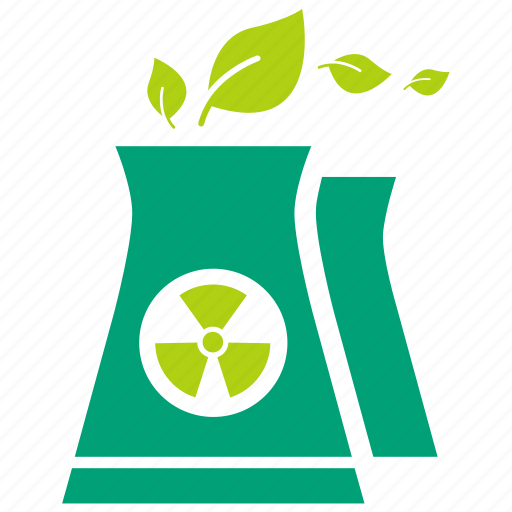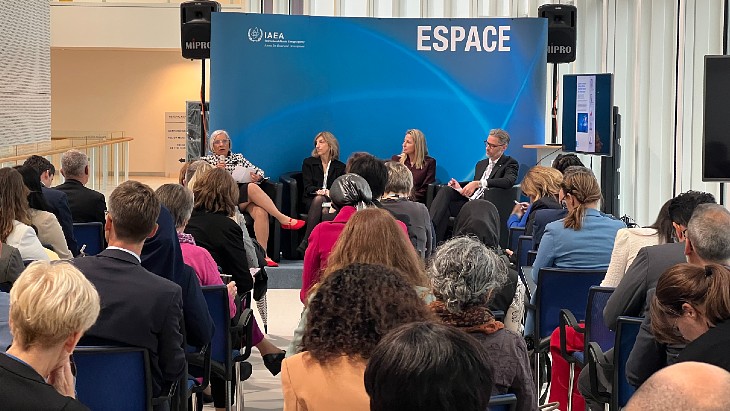The urgency of the demand for new nuclear capacity means that leadership will need to embrace change and look outside the sector for ideas and personnel, an IAEA General Conference panel discussion heard.
At a packed session called Leaders in nuclear: building effective leadership skills in the nuclear sector, Margaret Doane, International Atomic Energy Agency Deputy Director General and Head of the Department of Management, said that collaboration between the agency and the nuclear industry was greater than it had ever been,
Asked what the key leadership challenge was for meeting the widely shared goal of tripling nuclear energy capacity by 2050, she said: “Resilience. What I mean by that is that we have got to be much more accepting of change. I think in nuclear we were very risk-averse and the reason was because we wanted to put in place a very good, strong, safety culture, we wanted to have regulations that were well understood, we wanted to build trust in the communities and we did this through … very transparent processes that were also very long. And this was essential, but now … to answer these very challenging climate change questions … that has to go much quicker.
“All of us who have been in the field for years are still going to be necessary because you have a lot of the answers, but we have to be resilient in a way that we are accepting of change,” she said, picking up on a theme in the discussion about the need for a multigenerational outlook - “so many staff who are coming in have experience with technology that we don’t have, they have different ways of thinking, they’re experimenting and thinking of different designs. All kinds of different things coming out of the universities will move us ahead but we have to be open minded to accept this”.
Sama Bilbao y León, Director General of World Nuclear Association, said that the immediate focus was on attracting and inspiring the next generation of leaders - “leaders at every level - not everybody will be the CEO but everybody can be leaders in their area”. She said that leaders needed to be pragmatic and realistic, but boldness and curiosity were among the attributes required as well. Along with the other speakers she referred to the positive impact on leadership from initiatives such as World Nuclear University.
There was a need to be open-minded to learn from other industries, Bilbao y León said, and cited the work of entrepreneurs, SpaceX, the aerospace industry and the pharmaceutical sector, who managed to create a Covid-19 vaccine within a matter of months, before asking, “So can we get that kind of urgency in nuclear?” She said collaboration was important and there was a need to “articulate this ambition (to triple nuclear energy capacity) in a way that is not just a goal, but a path to actually deliver that ambition - so we are working with the IAEA, with member states and with industry to develop this path, these industrial policies - not just energy policies - that are going to get us there.”
Daniel Westlén, State Secretary to the Minister for Climate and Environment in Sweden, said that it was important to create an environment where companies, regulators and politicians were all working to the same timescales, with the need to promote long-term thinking and for politicians to build the trust that there will be the relevant regulations and support schemes introduced “whatever it takes”.
He also said that efforts to tackle diversity issues had been important and a key issue now was “diversity of personality … this industry has for quite some time structured itself in order to protect the core and to regulate. We have been attracting the kind of people that love structures and to follow procedures, which has been really beneficial because that’s what we need for reactor safety. But it kind of scares other personalities away from us, so this business is not full of entrepreneurs any more - it was in the 1950s and 1960s but these people have to be attracted back to the business."
Rumina Velshi, IAEA International Safety Advisory Group member and former Canadian Nuclear Safety Commission CEO, who moderated the hour-long discussion, said that the key points had been the need for collaboration, for urgency and the need for diversity - in terms of gender, age, backgrounds and outlooks - and also for considering the multi-generational aspects of decisions that may have an impact for many decades to come. “I think what we have heard here today is a recognition that while we have such great ambitions and aspirations there’s a lot of work ahead to be done.”



It still fucking is pretty damn essencial!
You don’t want to tinker and experiment with a nuclear reactor in production and there’s already a lot of tinkering and experimenting in the field, just look at SMRs.
…at the cost of reactor safety? No thanks.
I was really trying not to find DEI in this… fuck (in Cavil’s portraing of Geralt).